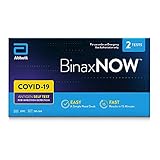Following the availability and use of the updated (bivalent) COVID-19 vaccines, CDC’s Vaccine Safety Datalink (VSD), a near real-time surveillance system, met the statistical criteria to prompt additional investigation into whether there was a safety concern for ischemic stroke in people ages 65 and older who received the Pfizer-BioNTech COVID-19 Vaccine, Bivalent.
Rapid-response investigation of the signal in the VSD raised a question of whether people 65 and older who have received the Pfizer-BioNTech COVID-19 Vaccine, Bivalent were more likely to have an ischemic stroke in the 21 days following vaccination compared with days 22-42 following vaccination.
The CDC and the FDA do not see the same safety signal for the Moderna booster shot.
I searched the Vaccine Adverse Event Reporting System. Below are the number of cerebrovascular accident cases (31) reported among those who had the Pfizer Bivalent Booster shot.


What’s the implication?
Laypeople and some medical personnel who file a report to VAERS will use the shorter and non-technical word stroke, not the longer cerebrovascular accident.
And since stroke is not a choice when looking for results, stroke cases will not be there. That means that even though strokes are reported, they will be absent when the data is gathered. That is speculation on my part. I have two situations where the CDC hides its data.
- CDC data: Sub-par efficacy of the Bivalent COVID shots
- CDC Report shows 25% Mortality in Breakthrough Cases
- CDC data shows higher deaths from 25-54 years old in 2021 compared to 2018-2020
- CDC data shows an equal risk of COVID-19 hospitalization for convalescent and vax induced immunity
Also, consider that VAERS data is under-reported by a factor of 100 based on the Lazarus report.
Adverse events from drugs and vaccines are common, but underreported. Although 25% of ambulatory patients experience an adverse drug event, less than 0.3% of all adverse drug events and 1-13% of serious events are reported to the Food and Drug Administration (FDA).
Likewise, fewer than 1% of vaccine adverse events are reported. Low reporting rates preclude or slow the identification of “problem” drugs and vaccines that endanger public health.
That means strokes related to the Pfizer Booster shot should be 3,100, and Moderna’s should be 1,000. That is not just a safety signal, but that is just me.
In August 2021, The British Medical Journal published the Risk of thrombocytopenia and thromboembolism after covid-19 vaccination and SARS-CoV-2 positive testing: self-controlled case series study.[4]
The study found an increased risk of arterial thromboembolism (arterial clot formation) after the Pfizer BNT162b2 mRNA injection (incidence ratio 1.06, 95% confidence interval 1.01 to 1.10 at 15-21 days) and after SARS-CoV-2 infection (2.02, 1.82 to 2.24 at 15-21 days).
There is also an increased risk of ischemic stroke (1.12, 1.04 to 1.20 at 15-21 days) after BNT162b2 mRNA vaccination and after a positive SARS-CoV-2 test.
That means those who got the Pfizer shot are 1.12 times more likely to have a stroke than those who did not get the Pfizer jab.
The conclusion of the study says,
The risks of most of these events were substantially higher and more prolonged after SARS-CoV-2 infection than after vaccination in the same population.
But they forgot to mention an important fact. Those studies were done in a political environment where early treatment for COVID-19 was discouraged.
Ischemic strokes and arterial thromboembolism happens if symptomatic treatment is only given to COVID-19 patients, and the SARS-CoV-2 is allowed to replicate until cytokine storms and strokes happen.
Studies have shown that ivermectin statistically significantly improves COVID-19 mortality, ventilation, ICU admission, and hospitalization. Check out c19ivm.org.
Most, if not all, strokes get admitted to the hospital. That includes strokes related to COVID-19.
Since ivermectin reduces hospitalization, we can assume it reduces strokes related to COVID-19.
In their report, the CDC does not recommend any changes in vaccination practice, and they continue to recommend the COVID jabs to anyone six months and older.
Use all the facts available to make your own decisions.
Truth heals. Lies kill. Don’t Get Sick!
Knowledge about Covid-19 is rapidly evolving. Stay current by subscribing. Feel free to share and like.
Follow me on Gettr, Truth Social, Gab, Parler, Twitter, Facebook, and Telegram.
If you find value in this website, please consider buying a coffee to show your support.
References:
- CDC: CDC & FDA Identify Preliminary COVID-19 Vaccine Safety Signal for Persons Aged 65 Years and Older
- United States Department of Health and Human Services (DHHS), Public Health Service (PHS), Centers for Disease Control (CDC) / Food and Drug Administration (FDA), Vaccine Adverse Event Reporting System (VAERS) 1990 – 01/06/2023, CDC WONDER On-line Database. Accessed at http://wonder.cdc.gov/vaers.html on Jan 15, 2023, 10:46:51 AM
- United States Department of Health and Human Services (DHHS), Public Health Service (PHS), Centers for Disease Control (CDC) / Food and Drug Administration (FDA), Vaccine Adverse Event Reporting System (VAERS) 1990 – 01/06/2023, CDC WONDER On-line Database. Accessed at http://wonder.cdc.gov/vaers.html on Jan 15, 2023, 10:50:03 AM
- Hippisley-Cox J, Patone M, Mei XW, Saatci D, Dixon S, Khunti K, Zaccardi F, Watkinson P, Shankar-Hari M, Doidge J, Harrison DA, Griffin SJ, Sheikh A, Coupland CAC. Risk of thrombocytopenia and thromboembolism after covid-19 vaccination and SARS-CoV-2 positive testing: self-controlled case series study. BMJ. 2021 Aug 26;374:n1931. doi: 10.1136/bmj.n1931. PMID: 34446426; PMCID: PMC8388189.
© 2018 – 2023 Asclepiades Medicine, LLC. All Rights Reserved
DrJesseSantiano.com does not provide medical advice, diagnosis, or treatment
As an Amazon Associate, I earn from qualifying purchases.
Discover more from Don't Get Sick!
Subscribe to get the latest posts sent to your email.





























